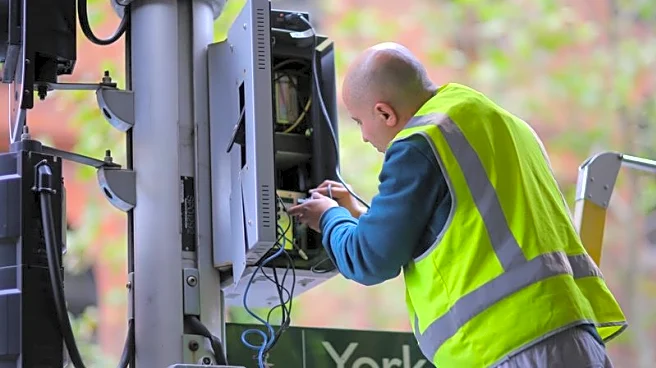What's Happening?
Economists are increasingly concerned about the U.S. job market entering 'stall speed,' a term borrowed from aviation that describes a slowdown in job creation potentially leading to a recession. Peter Berezin, chief global strategist at BCA Research,
suggests that the job market is on the verge of this condition, which could result in elevated unemployment rates and a self-reinforcing cycle of job losses. Recent data shows a significant slowdown in hiring, with job gains in July at 73,000 and downward revisions for May and June totaling 258,000. The upcoming August jobs report is expected to provide further insights into the labor market's trajectory.
Why It's Important?
The concept of 'stall speed' in the job market is significant as it could signal a broader economic downturn. If the job market continues to weaken, it may lead to increased unemployment rates, affecting consumer spending and business investments. This scenario could prompt the Federal Reserve to consider interest rate cuts to stimulate hiring and economic growth. The potential for a recession poses risks to various sectors, including retail, manufacturing, and services, which rely heavily on consumer spending and employment stability.
What's Next?
The August jobs report, scheduled for release soon, will be crucial in determining the next steps for the Federal Reserve and policymakers. If the report indicates further weakening, it may reinforce the recession narrative and prompt discussions on monetary policy adjustments. Economists and investors will closely monitor key indicators such as ADP Private Payrolls and initial jobless claims to assess the labor market's health and potential policy responses.
Beyond the Headlines
The implications of a 'stall speed' scenario extend beyond immediate economic concerns. It raises questions about the resilience of the U.S. labor market and the effectiveness of current economic policies. Long-term shifts in employment patterns, consumer behavior, and business strategies may emerge as stakeholders adapt to changing economic conditions. The role of technology and automation in shaping the future job market also warrants attention.
















